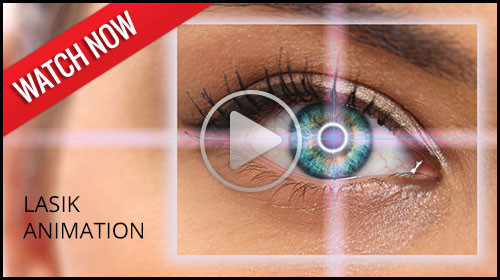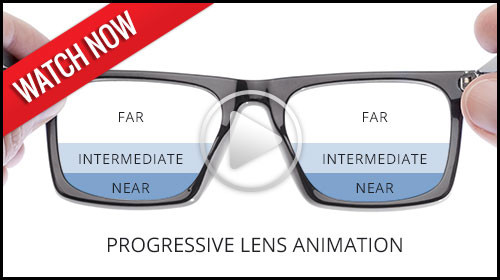Blog
The spots, strings, or cobwebs that drift in and out of your vision are called “floaters,” and they are more prominent if you’re looking against a white background.
These floaters are tiny clumps of material floating inside the vitreous (jelly-like substance) that fills the inside of your eye. Floaters cast a shadow on the retina, which is the inner lining of the back of the eye that relays images to the brain.
As you get older, the vitreous gel pulls away from the retina and the traction on the retina causes flashing lights. These flashes can then occur for months. Once the vitreous gel completely separates from the back wall of the eye, you then have a posterior vitreous detachment (PVD), which is a common cause of new onset of floaters.
This condition is more common in people who:
- Are nearsighted.
- Are aphakic (absence of the lens of the eye).
- Have past trauma to the eye.
- Have had inflammation in the eye.
When a posterior vitreous detachment occurs, there is a concern that it can cause a retinal tear.
Symptoms of a retinal tear include:
- Sudden increase in number of floaters that are persistent and don't resolve.
- Increase in flashes.
- A shadow covering your side vision, or a decrease in vision.
In general, posterior vitreous detachment is unlikely to progress to a retinal detachment. Only about 15 percent of people with PVD develop a retinal tear.
If left untreated, approximately 40 percent of people with a symptomatic retinal tear will progress into a retinal detachment – and a retinal detachment needs prompt treatment to prevent vision loss.
Generally, most people become accustomed to the floaters in their eyes.
Surgery can be performed to remove the vitreous gel but there is no guarantee that all the floaters will be removed. And for most people, the risk of surgery is greater than the nuisance that the floaters present.
Similarly, there is a laser procedure that breaks the floaters up into smaller pieces in hopes of making them less noticeable. However, this is not a recognized standard treatment and it is not widely practiced.
In general, the usual recommendation for floaters and PVD is observation by an eye care specialist.
Article contributed by Jane Pan M.D.
The content of this blog cannot be reproduced or duplicated without the express written consent of Eye IQ. This blog provides general information and discussion about eye health and related subjects. The words and other content provided in this blog, and in any linked materials, are not intended and should not be construed as medical advice. If the reader or any other person has a medical concern, he or she should consult with an appropriately licensed physician.
One of the hardest questions eye care professionals deal with every day is when to tell people who are having difficulty with their vision to stop driving.
Giving up your driving privilege is one of the most difficult realities to come to terms with if you have a problem that leads to permanent visual decline.
The legal requirements vary from state to state. For example, in New Jersey the legal requirement to drive, based on vision, is 20/50 vision or better with best correction in one eye for a “pleasure” driving license. For a commercial driving license, the requirement is 20/40 vision or better in both eyes.
In some states there is also a requirement for a certain degree of visual field (the ability to see off to the sides).
According to the Insurance Institute for Highway Safety, the highest rate of motor vehicle deaths per mile driven is in the age group of 75 and older (yes, even higher than teenagers). Much of this increased rate could be attributable to declining vision. There are also other contributing factors such as slower reaction times and increased fragility but the fact remains that the rate is higher, so when vision problems begin to occur with aging it is extremely important to do what is necessary to try to keep your vision as good as possible.
That means regular eye exams, keeping your glasses prescription up to date, dealing with cataracts when appropriate and staying on top of other vision-threatening conditions such as macular degeneration, glaucoma and diabetes.
It is our responsibility to inform you when you are no longer passing the legal requirement to drive. Although there is no mandatory reporting law in all states, it is recorded in your medical record that you were informed that your vision did not pass the state requirements to maintain your privilege. And, yes, it is a privilege - not a right - to drive.
If you have a significant visual problem and your vision is beginning to decline, you need to have a frank discussion with your eye doctor about your driving capability. If you are beginning to get close to failing the requirement you need to start preparing with family and love ones about how you are going to deal with not being able to drive, preferably before it becomes absolutely necessary.
We have had the very unfortunate occurrence of having instructed a patient that he should stop driving because his vision no longer met the requirements only to have him ignore that advice and get in an accident. Don’t be that guy. Be prepared, have a plan.
Article contributed by Dr. Brian Wnorowski, M.D.
The content of this blog cannot be reproduced or duplicated without the express written consent of Eye IQ. This blog provides general information and discussion about eye health and related subjects. The words and other content provided in this blog, and in any linked materials, are not intended and should not be construed as medical advice. If the reader or any other person has a medical concern, he or she should consult with an appropriately licensed physician.














